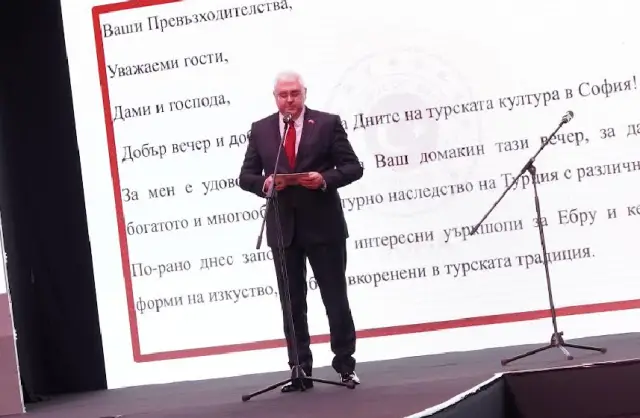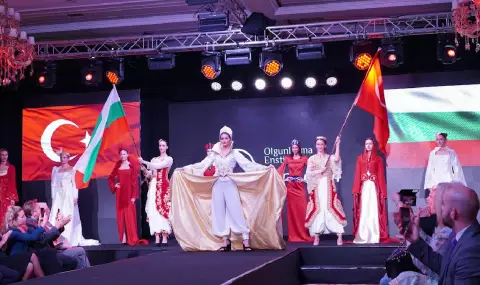The Days of Turkish Culture captured the hearts of the participants with a lively program of Turkish art, crafts, cuisine and traditions. The arena of the events was the capital's "ramada" hotel, according to the Turkish embassy.
Marbling (ebru) and ceramics (torna) workshops allowed participants to enter the complex and creative world of traditional Turkish arts. These workshops not only highlighted the exceptional craftsmanship of Turkish artisans, but also provided an opportunity for cross-cultural interaction and appreciation.
An exquisite exhibit from the Kırklareli Olgunlaşma Institute was also presented. The exhibition featured stunning ceramic and textile works that brought Turkish craftsmanship to life. Attendees were amazed by the intricate patterns and techniques reflecting a centuries-old Turkish artistic tradition that continues to flourish today.
Climaxing yesterday was the Turkish Red and Moon White fashion show, which celebrated the historical and cultural significance of the iconic Turkish red. The handmade garments showcased the timeless beauty and elegance of traditional Turkish textiles created by the talented artisans of the Kırklareli Olgunlaşma Institute.
The history of Turkish red dates back to the Ottoman era, originating from the city of Edirne. This vibrant shade of red, achieved through a complex 38-step dyeing process, was not only visually striking, but also gave the fabric antibacterial and antifungal properties – quality unmatched even by modern technology.
During the 17th and 18th centuries, the secret formula of Turkish red became the focus of attention of European merchants who sought to reproduce its brilliance. Known in Europe as Rouge d’Andrinople (Odrine Red), it revolutionized the European textile market and cemented its place as a symbol of Ottoman innovation.
Revived after extensive academic research and patented in recent years, Turkish red is now celebrated not only in textiles but also in ceramics and other crafts, thanks to the efforts of institutions such as the Kırklareli Olgunlaşma Institute.
In his keynote address, H.E. Ambassador Mehmet Sait Uyanak emphasized the importance of cultural events to promote deeper ties between Turkey and Bulgaria. “Turkish Culture Days not only celebrate our rich heritage, but also serve as a bridge of friendship and understanding between our two nations. The workshops, exhibitions and this stunning fashion show are proof of the shared cultural harmony between Turkey and Bulgaria.

„Next year, we will continue to organize a series of cultural, academic and culinary events to celebrate the centenary of the signing of the Treaty of Friendship between Turkey and Bulgaria.“
The Ambassador also expressed gratitude to key participants, including the Rector of the University of Telecommunications and Posts, Professor Miglena Temelkova, for her continued support for cultural and academic exchange, and to the owner of Klas Gıda, Mr. Seyhan Yakupoglu, for his generous sponsorship.
The Days of Turkish Culture will continue today at the University of Telecommunications and Posts in Sofia, including: Marbling (ebru) and ceramics (torna) workshops; an exhibition of ceramics and textiles by the Karklarelli Institute of Crafts; tasting of Turkish cuisine; a special corner for Turkish coffee in honor of World Turkish Coffee Day.

